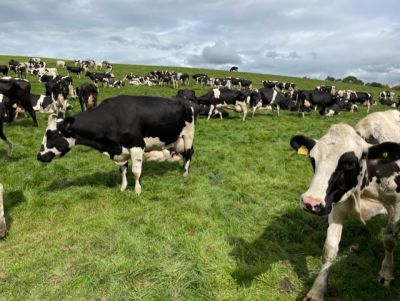
Posted By:
For dry cows, it's crucial to strike the right balance in their feed intake. Restricting their access to grass is a smart strategy. Ideally, dry cows should consume a minimum of 7kg dry matter of forage, whether it's in the form of mixed feed, long chop hay, or silage. If they're consuming less than this amount, they might be overindulging in grass.
To support magnesium levels in dry cows, incorporating magnesium chloride into their water troughs can be highly effective. About 150g of magnesium chloride per cow per day is recommended. Regular replenishing is preferable to avoid making the water unpalatable, which might hinder their water intake.
Paddy suggests a calcium bolus at calving for older cows. This additional support is necessary in higher risk older cows, which are at greater risk of milk fever.
The ultimate goal is to minimise the occurrence of milk fever during calving. By fine-tuning dry cow feeding and ensuring proper magnesium and calcium intake, we aim to have fewer than 1 in 20 cows suffer from milk fever. This isn't just about preventing milk fever itself, but also reducing the risks of associated complications such as mastitis, retained cleansing, and LDAs.
At Shepton Vets, we are always looking to optimise the health and productivity of your herd. Paddy and the farm team are on farm every day and so know both current issues and practical steps to resolve. We also collaborate closely with farmers and their advisros to tailor recommendations based on specific herd needs.
Whilst on my visits I have been having several discussions...
As our feline friends get older there are a few conditions...
Another winter discussion group season is now behind...
©2024 Shepton Veterinary Group Ltd., All rights reserved.
Privacy Policy • Terms & Conditions • Cookie Policy